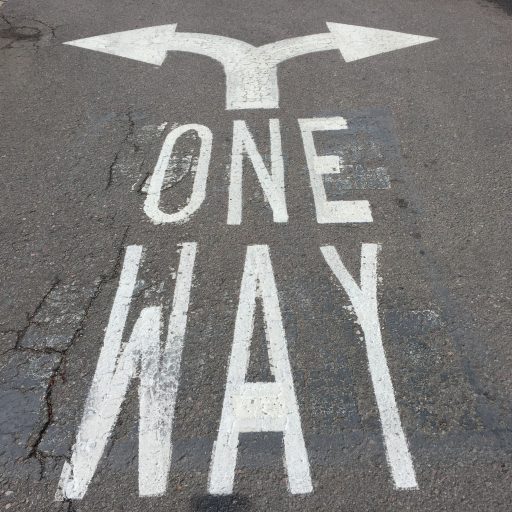Point of no return. This phrase comes from aviation. It’s the point in a flight when there is no longer sufficient fuel for a plane to return to its starting point. Landing must now occur somewhere else.
This concept has been coming up a lot for me lately, largely in response to a number of deaths or anniversaries of deaths. While someone is alive, even if they are clearly in the process of dying, there still exists the possibility that they will remain alive. And then, in a blink of an eye, the point of no return is passed and they are no longer alive. We discover this retrospectively. The last breath or heartbeat is identified by something that did not happen.
Prior to this point, so much exists as potential; life may continue, the flight may go here or there, I can jump or not jump, the words can be said or not. Potential and possibility. So very important in providing a sense of choice or ability to tolerate a circumstance. If I truly believe I am free to leave at any time, I am likely to stay longer than someone who does not believe they are free to leave.
At some level, we understand this intuitively, that circumstances can change in an instant, and once changed cannot be unchanged. I suspect this awareness is part of many individual’s existential terror, that gut sense that it can all end at any moment. True, and it also may not. Living with the knowledge of the precarious nature of existence, the challenge to me is how to allow this to add to the savor of life, increasing thrill rather than fear. Not unlike a roller coaster, where one is going up until that critical point is reached, and after that blink of suspension, one is careening down and around, riding out the pre-ordained journey.
No turning back.

I love that your blogs really make me think about things I would normally not think about. Thank you for that!
LikeLiked by 3 people
Glad you’re enjoying the variety. I never quite know what’s going to get activated in my mind.
LikeLike
The thing about a rollercoaster (that’s operating correctly) is that the “salvation” is mechanical and we know it.
In 2003 I lived in the mountains east of San Diego. The (now second) largest wildfire in CA history headed toward my town from three directions. We evacuated toward the fourth. I spent the day in a park in the little town of Pine Valley. All I took with me in my truck were my dogs, food for us, water, camping supplies. I had an intellectual understanding of the situation but until I saw the flames crest the hills east of Pine Valley, heading toward us, I didn’t really understand “life-or-death.” I’ve thought about it a lot and I think there. might be a switch in our brains that tells us “Deny this reality” until we can’t any more. I can see that as a way to prevent panic and help us survive.
But the binary — life or death — is real. That hit home for me during those days, too.
LikeLiked by 1 person
You are correct on the roller coaster, which is part of why it for many stays on the “fun” side of things. There’s a whole article that could be added to this on the survival brain and its activation and how that impacts point of view. Yes, some level of denial, or at least keeping the awareness of the binary on the back burner is essential to being able to function in the world, and particularly in emergency situations. I can only imagine what the fire must have been like for you. They’ve been close over the years in the foothills, but not quite that close.
LikeLiked by 1 person
Loved this!!!! I don’t like roller coasters. The experience is terrifying for me! Loved your analogy, though. The concept of the “point of no return” is evident in so many of life’s choices. No turning back…once you’re strapped in and have consented to the ride! I ONCE road the Cyclone at Coney Island, in New York! :0
LikeLiked by 1 person
Glad you like it, even if roller coasters aren’t fun for you
LikeLiked by 1 person